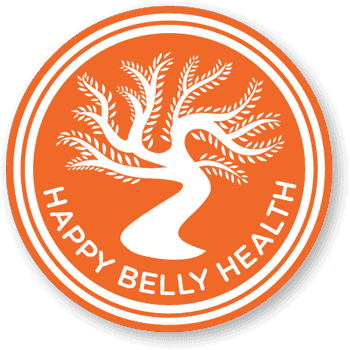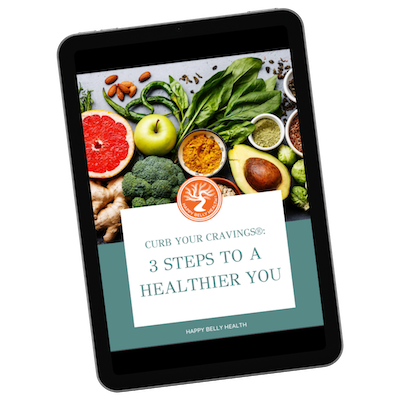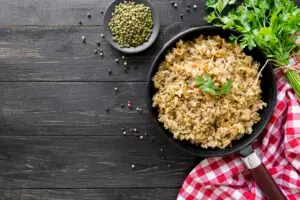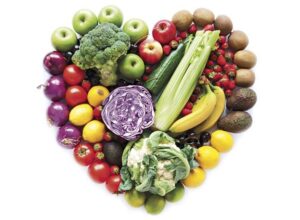“Recent data clearly contradicts the lowfatisgoodhealth message and the idea that all fat is bad for you. The exclusive focus on the adverse effects of fat may have in fact contributed to the obesity epidemic.”*
Dr. Walter Willett, Chairman, Department of Nutrition, Harvard University
Contrary to the catch phrases from the lowfat movement in the US the past few years, we need fat. Fat plays a key role in innumerable processes in the body. The membrane of every cell in your body is made of fat. Many nutrients are fatsoluble (e.g. Vitamins A & D) and can best be absorbed in the body when eaten along with fat. Fat is your body’s mainstay energy source (with carbohydrates serving primarily immediate or emergency needs). Fat should be a significant part of your diet everyday.
Yes, fat has more calories per gram that protein and carbohydrates, so it should be eaten mindfully when weight loss is a goal. Fat, however, also helps to create a feeling of satiety and can be very useful in controlling blood sugar swings. Coconut oil is an excellent tool for facilitating weightloss and blood sugar control.
The key concept in healthily enjoying delicious fats in your diet is selection. Some fats are very healthy. Other fats are very dangerous. Here is a summary of some key considerations and shopping tips:
- Omega3 (N3): Essential Fatty Acids. This is one of the top deficiencies in the American diet! Called “essential” because your body cannot make its own supply; they must be consumed. Helps lower levels of stress hormones in the body such as cortisol. It’s important to get the right balance of omega6 and omega3 fats to optimize your body’s metabolism. Most modern diets, however, lack omega3 fats entirely. Try to eat at least one serving per day of fatty fish (e.g. mackerel, salmon, herring), fish oil, walnuts, or ground flaxseeds (2T). Many people also benefit from an omega3 supplement. If you choose fish oil, sure to look for one that is independently certified as being completely toxinfree. Cheap fish oil is often inferior, and you don’t want to consume contaminants, especially mercury.
- Don’t eat transfats at all. Don’t just limit them. Read labels. Avoid all foods that include any type of “partially hydrogenated” oil (e.g. Coffee Mate, Cool Whip, many “low fat” products, most crackers/cookies). Be diligent. This chemicallymodified fat is in wide use to extend the shelf life of processed foods. Unfortunately, it’s also proven to reduce “good” cholesterol, increase “bad” cholesterol, and increase the likelihood of heart disease.
- Eat monounsaturated fats liberally (e.g. fish, almonds, walnuts, avocado, olives).Emphasize these fats for weight loss and blood sugar control. They also help to suppress hunger naturally.
- Enjoy coconut oil liberally. Coconut oil is saturated oil but a unique mediumchain form that cannot be stored in the body and is readily available for energy. It is also particularly healthy for your thyroid. Be sure to choose an unrefined variety. Eat it plain (by the spoonful) to stave off inbetweenmeal hunger. Cook with it. Coconut oil is one of the few fats that do not become rancid when heated to higher temperatures. For weight loss or to counter inflammation in the body, consider eating a Tbsp daily, preferably with breakfast.
- Use caution with Omega6 polyunsaturated oils. Despite the marketing push behind these oils, most are highly processed in a series of steps akin to oil refinement to create gasoline. If you do choose these, be sure to select coldpressed varieties. Unfortunately, these oils are highly prevalent in processed foods. Again, setting a habit to read the labels of all processed foods is helpful. Common oils in this category include soybean, canola, safflower, peanut, and sunflower.
- Saturated fat from animal products. Used for centuries as the primary source of dietary fat (e.g. cream, butter, full fat yogurt meat). Choose freerange, grassfed sources (available via the internet and at some grocery stores e.g. Trader Joe’s, Whole Foods). Avoid all meats that are not certified as being both hormone and antibioticfree. Pay attention to how this type of fat makes you feel (satisfied, tired, energized, hungrier?) Make sure you are getting sufficient Omega3 essential fatty acids in order to balance the saturated fat in your body and to keep inflammation low
Gary Taubes, “What If It’s All Been a Big Fat Lie?” New York Times magazine, July 7, 2002. I highly recommend his book
“Why We Get Fat” for a deep investigation into medical research about fats & society’s misguided fatfree food obsession.






